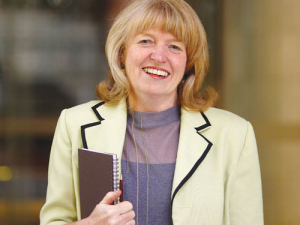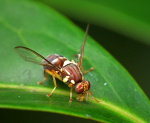Horticulture is in a growth phase and has ambitious goals, says the director of the HortNZ Leadership Programme, Sue Pickering.
Many people who have been a long time in the industry are now looking towards retirement, she says.
“The whole realm of succession, and people with skills and leadership qualities, has become high on the radar. It means programmes like this are popular, and people are recognising the need for them.”
Last year, a record 35 people applied for the 18 places available on the course. “We’re finding a real demand at the moment.”
A 25-year veteran of the horticultural industry, Pickering has held roles in HortNZ including senior business manager and acting chief executive, developing such initiatives as the Leadership Programme and the Young Grower of the Year.
She has recently struck out on her own with a business coaching consultancy but continues to run the Leadership Programme for HortNZ.
Having started in 2001 with 12 participants a year, it is going “from strength to strength” and now has at least 225 graduates, many of them now “popping up everywhere” in the industry. A survey of horticultural employers last year also gave it positive feedback.
Pickering runs the course with the help of two other directors -- Lincoln University professor Tony Zwart and Dr Patrick Aldwell.
The programme runs between August and October each year in three parts: a four-day residential at Lincoln, a six-week project in which each participant works on their own personal and professional development, then three days in Wellington where they present their projects and get an introduction to the country’s regulatory and administrative landscape.
Pickering says an objective of the programme is to give participants an understanding of how Wellington works from an industry leadership point of view. They get to call on and discuss the state of the industry with the Minister of Agriculture.
“We’re very lucky to have had that connection ever since the year dot,” she says.
“The context of this is some of the bigger issues in industry -- biosecurity, environment, natural resources, labour issues -- across the board. We connect with folks who are already leading, and focus on strategic thinking at all different levels -- whether industry, organisational or individual.”
Pickering says there is no age limit to participation and past attendees have ranged from their early 20s to their mid-50s. It is open to anyone committed to horticulture and who either shows potential for or is already in a leadership role in the industry.
“That diversity of ages is a real advantage point for the programme because we work with the people in each year. We find part of the philosophy of this programme is that there’s a lot to be gained from the participants themselves. They find they’ve got a lot in common. They feed off each other and the issues that we work with.
“You can have kiwifruit folk, cherry growers from Otago, someone from the corporate T&G world, someone from the citrus area north of Auckland; you name it, we have it, across different types of businesses, across different sectors and across the regions.”
Entries for this year’s course open in early March and close on May 31.



















